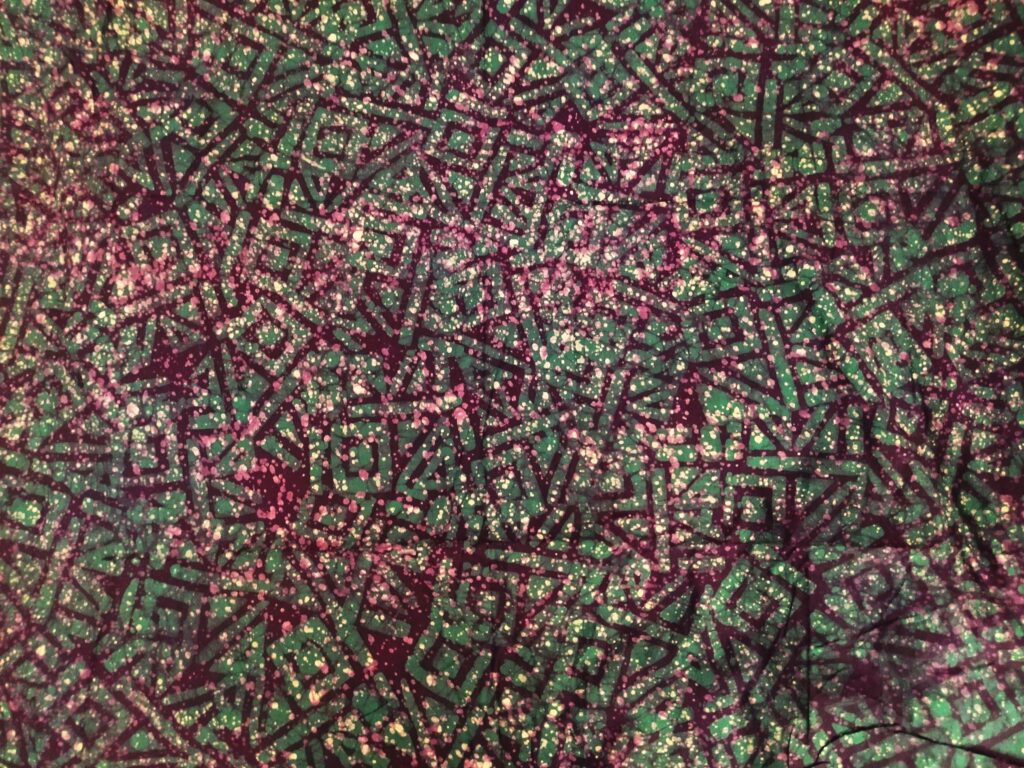It took me almost three years to come up with the translation of an original Ewe poetry into French, Italian and Brazilian Portuguese.
I first translated the foreword into French, which enabled me to see the importance of bringing Ewe literature to the world.
But first things first. Ewe is a language mainly spoken in Togo, Benin and Ghana. There are Ewe people now living everywhere on the planet and the language is mostly spoken in intimate spaces and during family or community gatherings. While oral Ewe literature is vast and rich, written Ewe literature is mostly religious. Only in recent years, Ewe has been used for written literary creations that embrace themes and matters other than religious ones.
One of those precious Ewe creations that embrace different and various themes and matters is AƉETƆTRƆ, by Togolese author Ali-Tagba Tétérého. ADETOTRO is a journal of poems, composed by Ali-Tagba Tétérého between 2006 and 2010.

The title, which is also the title of one of the poems in this small book, translates literally as “Manipulation Of The Tongue”.
Here are some notes I took all along my personal challenge to translate ADETOTRO’ s poems into French, Italian and Brazilian Portuguese.
The poem I call your attention to today is entitled “AZƆLIWO”. The word AZOLIWO, or its singular AZOLI, appears in almost every verse of the poem. The author uses it to bring us a very deep, thoughtful and human message, and this unique word serves the author’s purpose in a very concise and elegant way.
In English, “AZOLIWO” can be translated as “Paths”, “Steps”, “Pathways”, “Races” or “Journeys”. So, in Ewe, all these English words are “AZOLIWO”. So happens in French, Italian and Brazilian Portuguese: depending on the context, “AZOLIWO” can be expressed with several words in each of these languages. An observation that leads me to my first note.
NOTE 1: About the richness of a language
Polysemy is one core characteristic of Ewe language. The unique noun AZOLIWO (pl) and AZOLI (singular) in the Ewe poem perfectly fit the phrasing and meaning conveyed by author Ali-Tagba Tétérého in the different parts of the poem. Meanwhile, I couldn’t find any unique word that functions that same way neither in the French version nor in the Italian one nor in the Brazilian one.
So, one of the major struggles I had to face all along AZOLIWO’s translation into French, Italian and Brazilian Portuguese, was the choice of the best solution for each part of the poem, a solution that could be loyal to the original phrasing, to the concise spirit of Ewe, as well as to the assertive but light style of Ali-Tagba Tétérého’s pen.
This led me to the following questions: in what aspects does the richness of a language lay? Only inthe number of words and synonyms, in other words, in the abundance of words and the big volumes of its dictionaries? Or also in the internal polysemy of its words?
Because African languages are usually seen as poor languages. This is probably due to the lack of dictionaries and to the fact that when African people speak their autochthonous mother tongues, especially in urban spaces, they usually employ nouns and expressions from the foreign colonial language made an official language of their country. Which suggests a double Idea: that expression or word does not exist in the autochthonous language; or they are not skilled enough in their own autochthonous tongue to know that particular word or expression.
Minimalism / essentialism is a spreading concept, a passion, a lifestyle and a material and a spiritual need for some people in our time. Especially in the design field, minimalism’s watchword is “Less is More”. In light of this extremely interesting concept, do the real riches, in a world where in our daily life we use only a slight quantity of the words encoded in our dictionaries, lay in the abundance of the words or in their polysemy?
NOTE 2: Ewe’s magic
Ewe language has an “onomatopoeic” structure. Ewe is a language that really celebrates the sounds and the gestures, the moves and the shapes of things, actions, people, animals, facts. Ewe comes to do something that can be defined as magic: create or introduce a sort of onomatopoeia in most of its verbs and adjectives!
NOTE 3: The need to read it aloud
Ewe litterature must be read aloud. Because it is a tonal language with many homographs and because every author has its writing preferences: some put the graphic accents, some others do not; some authors write the vocalic sound in a manner, others do it in another manner. In this case, I must thank Togolese writer Afiwoa Koudri for reading AZOLIWO aloud so that anyone can listen to Ewe. Her recording saved me from committing a huge interpretation mistake right at the final revision of the translations. Without her careful reading I would have kept “Ame bubu” as “The respect” instead of “A lost person”.
NOTE 4: What got lost in translation…
Ewe poetry’s conciseness usually gets lost in translation, when translated into European languages. This conciseness is forged by Ewe’s agglomerative grammar structures and meanings system construction ; its alliterative expressions as well as its highly frequent “jeux de mots” (puns). A loss I really regret is the one that happened in the translation of the following four verses:
“Azɔli aɖewoa,
Ɖe ko woɖi azɔli,
Womenye azɔli o.
Azɔko wonye.”
The jeux de mots‘s core elements are Azɔli and Azɔko. Azɔko is an extremely concise expression we use in Ewe as a reaction to the late arrival of someone somewhere they were expected to be at a certain time. In French we usually say ”Enfin!”, “C’est pas trop tôt !” or the more ironic “J’ai failli attendre!”. In Italian we usually say “Alla buon’ora!”. And in Brazilian Portuguese, well, the less defective options my skills led me to are “Finalmente!” and “Chegou?!”. Dear reader, feel free to kindly share your competent criticism/ disagreement/ suggestions.
As many translation theorists put it, to translate is to try to embed the foreign into your mother tongue or whatever destination language you have.
Some other steps,
Just look like steps.
They are not steps.
They are “Finally!”.
NOTE 5: The original and the translations at a first sight
Visually, the final French, Italian and Brazilian Portuguese translations are longer than the original Ewe. This puts me in front of that brevity of the Ewe language I mentioned at the beginning. But also to the further possibilities to retranslate the poem and come up with solutions that are more harmonic with the original writing.
Final toughts
Attempting to translate Ewe poetry, especially the poems in Ali-Tagba Tétérého’s book, led me to some observations and questions about the mainstream idea of a language’s richness; the magic of Ewe language; the need to read its literature aloud; the losses in translation, as well as the visual impact and space occupied by a language in writing.
Translating ADETOTRO’s poems brought me closer to my mother tongue, which I am learning to read and write just now, as a grown up Ewe kid, who was first taught to read, (speak) and write in 5 languages from outside Africa.
Many thanks to Joseph Kimanzi Kiumo for revising my writing and translations into English. His observations encourage me to publish the English version of ADETOTRO’s foreword (after the French version from November 2021), as well as the very amatorial English translation of AZOLIWO I did lately.
To translate ADETOTRO, or any other literary creations from original African languages, one needs to keep reminding him/herself the words of Kenyan author Ngũgĩ wa Thiong’o: “If you know all the languages in the world and you don’t know your mother tongue or your first language or the language of your culture, then that is a self-enslavement. But, if you know your mother tongue or your first language then you add all the languages in the world to it, that’s empowerment!“.




I am the founder of the Heritage Center Junction (www.thehcjunction.com). I am looking to hire an ewe language expert to help me with editing a beginner’s ewe alphabet and grammar book.